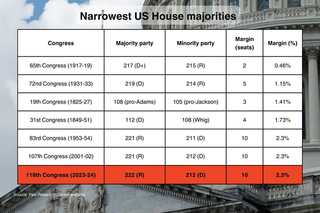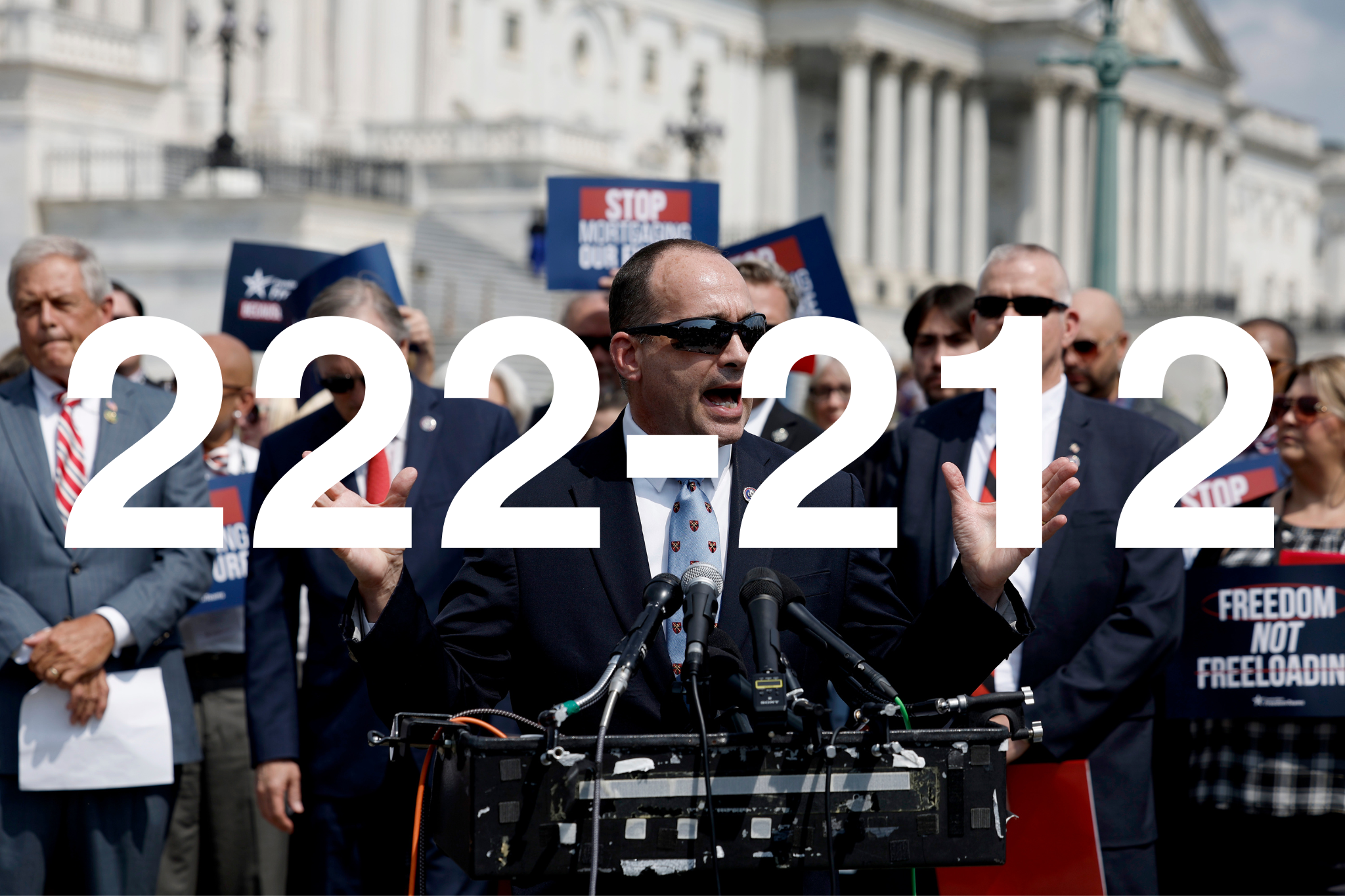When the Republican Party only managed a narrow 10-seat majority (222-212) in the House of Representatives after the 2022 midterm elections, the tightest margin in almost a century, it was clear the next two years of legislating were going to be a tough fight for the 118th Congress.
This month’s episode of brinkmanship over government spending, with the three dozen House Freedom Caucus members holding hostage 11 appropriations bills in exchange for a cap to “reckless government spending”; movement on culture wars issues; and a (now successful) call for a formal impeachment inquiry into the Biden family, marks just the latest instalment in Congress’ woes with the House Republican’s small margin.

It was only about four months ago that Speaker McCarthy sailed to a speakership-career high point forging the Fiscal Responsibility Act in negotiation of the debt-ceiling with President Biden and winning an unexpected 149 votes from his party. But the moment only came after the speaker wore months of politicking that forced the President’s involvement in the debt-ceiling fight and came at the cost of extra grievances from House Freedom Caucus members who felt betrayed by McCarthy’s negotiation.
Less than nine months ago, the then-aspiring speaker faced 14 failed votes in efforts to ascend to the gavel, with stonewalling from the party’s far-right flank causing the most drawn-out speakership battle since before the Civil War (the 1839 election of speaker took 63 ballots). The speaker’s eventual success was struck with a risky ultimatum, and McCarthy agreeing to ‘a motion to vacate’ clause, which now appears to be putting McCarthy’s leadership in the most fragile position to date.
Narrow margins in the US House of Representatives are nothing new and are, in fact, becoming more common. However, the 107th Congress (2001–2003), with a similar 10-seat Republican majority, would suggest tight margins do not inherently condemn the House to such fracture and stagnation. In its two years, the 107th Congress passed significant legislation — the No Child Left Behind education law, overhauls to campaign financing rules, and, in the wake of the 9/11 terror attacks, a raft of legislation including the Patriot Act.
But the equal-fifth-tightest House margin in US history clearly presents a different case, with members of the Republican party currently unable to reach enough agreement to even pass the usually routine spending bills needed to keep the government in action. With only 11 working days left to avoid shutdown, McCarthy may well need a miracle to walk away with a funded government (or, at least, a continuing resolution) and his leadership still intact.
This commentary was first published in the weekly 46th newsletter. Subscribe to the 46th here.





.png?rect=0,107,2048,1152&w=320&h=180&fit=min&auto=format)
